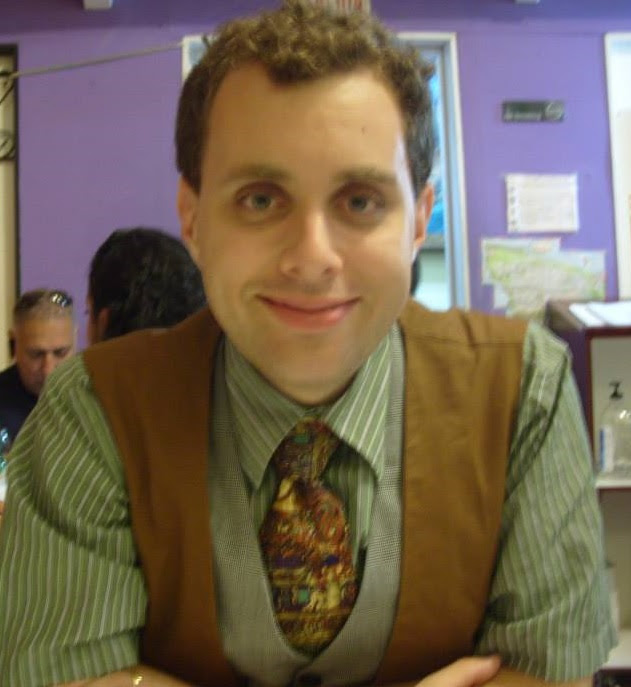
John Giebfried
My teaching and research interests focus on the medieval origins of world history. In the twelfth and thirteenth centuries, a pair of great invasions: the Crusades and the Mongol conquests, allowed for an unprecedented circulation of peoples, goods and ideas across Eurasia. This moment of intercultural contact and conflict has shaped the course of world history ever since. In my two published articles, book chapter, and especially my book manuscript, I explore places and individuals which exemplify this global convergence.The book manuscript, entitled The Imagined Empire of Baldwin II, Last Crusader Emperor of Constantinople, examines the politics of religion and statecraft at the frontiers of the Christian, Muslim and Mongol worlds.
Education
2010-2015 Doctor of Philosophy in History (Defended October 30, 2015), Saint Louis University, St. Louis, Missouri, USA.
Dissertation Title: “The Imagined Empire of Baldwin II, the Last Crusader Emperor of Constantinople (1217-1273)”. Committee: Thomas Madden (chair), Warren Treadgold & Damian Smith. Major Field: Medieval History, Minor Field: Early Modern History.
2009-2010 Master of Arts in Crusader Studies, Royal Holloway College and Queen Mary College, University of London, UK. MA Thesis Advisors: Jonathan Phillips & Jonathan Harris.
2008-2009 Master of Arts in Medieval Studies, University of Toronto, Toronto, Ontario, Canada.
2004-2008 Bachelor of Arts in History with a Subsidiary in Political Science. St. Francis Xavier University, Antigonish, Nova Scotia, Canada.
Publications
Manuscripts in Preparation
2016 The Imagined Empire of Baldwin II (updated manuscript of doctoral dissertation)
2016 A Queen’s Ransom: The Crisis of the Fourth Crusade Student Gamebook and Instructor’s Manual (with Dr. Kyle Lincoln, Kalamazoo College)
* Primary author of a student-led historical role-playing game based on the Fourth Crusade which is part of the Reacting to the Past series.
* The game manuscript is in classroom use at multiple universities, helping students learn about the Fourth Crusade by assuming the roles of historical figures and debating the key issues and reenacting the events of the crusade.
* After additional playtesting and revisions, this manuscript will be published by Norton as part of their Reacting to the Past series.
Article-Length Publications
2017 “Baldwin of Hainaut and the Politics of Mongol Diplomacy,” in Along the Mongol Silk Roads: Merchants, Generals, Intellectuals. Ed. Michal Biran et al. (Forthcoming, University of California Press).
2014 “Crusader Constantinople as a Gateway to the Mongol World,” Proceedings of the Third International Symposium on Crusade Studies (Forthcoming 2017).
* Examines the travels of early European envoys to the Mongol court and posits a shift towards Constantinople and the Black Sea as the primary route to the East and explores the reasons for this.
2013 “The Crusader Rebranding of Jerusalem’s Temple Mount,” Comitatus 44 (Autumn 2013), pp. 77-94.
* Uses medieval pilgrimage narratives to explore the Crusader appropriation of Jewish and Islamic traditions in their understanding of the Temple Mount.
2013 “The Mongol Invasions and the Aegean World (1241–1261),” The Mediterranean Historical Review 28 (Dec. 2013), pp. 129-139, republished 2016.
* Reexamines the role of the Mongols in the restoration of Byzantium and provides new vidence for a Mongol invasion of the Latin Empire of Constantinople.
Book Reviews
2017 Bullarium Hellenicum, Pope Honorius III's Letters to Frankish Greece and Constantinople by W. O. Duba and C. Schabel, The Medieval Review, February 27, 2017.
2016 Warfare and the Miraculous in the Chronicles of the First Crusade by Elizabeth Lapina, The Medieval Review, August 20, 2016.
2014 Crusade and Christendom, Annotated Documents in Translation from Innocent III to the Fall of Acre, 11871291 by Jessalynn Bird, Edward Peters, and James Powell, Crit-Com, the Journal of the Council of European Studies, February 19, 2014.
Paper Presentations
2016 “Who Numbered the Crusades?” Fourth Annual Symposium on Medieval and Renaissance Studies, Saint Louis University.
2016 “Queen of Cities: The Crisis of the Fourth Crusade” Fifth Annual Reacting to the Past Game Development Conference, Central Michigan University, Mount Pleasant, MI.
2016 “The Long Sack of Constantinople, 1197-1261” Crusade Studies Forum, Saint Louis University.
2015 “Crusader Constantinople's 1205 ‘Magna Carta’” Third Annual Symposium on Medieval and Renaissance Studies, Saint Louis University.
2014 “The Poor Emperor’s Poor Sisters: The Daughter-houses of Crusader Constantinople in the Low Countries” Second Annual Symposium on Medieval and Renaissance Studies, Saint Louis University.
2014 “Crusader Constantinople: Gateway to the Mongol World” The Third International Symposium on Crusade Studies, Saint Louis University.
2013 “The Crucified Constable: Amedée Pofey and the Propaganda of the early Latin Empire of Constantinople” First Annual Symposium on Medieval and Renaissance Studies, Saint Louis University.
2012 “The Crusader Rebranding of Jerusalem’s Temple Mount” 47th International Congress on Medieval Studies, Western Michigan University.
2011 “The Great Fire of London: Who is to Blame?” The Formation of Religious Identities in Early Modern Europe: Contemporary Perspectives Conference, Saint Louis University.
2011 “The Mongol Invasion of the Aegean World (1241–1261)” 46th International Congress on Medieval Studies, Western Michigan University.
2011 “Revisiting Amedée Pofey: A Study of the Mysterious Life and Death of the Latin Empire's Crucified Constable” Crusade Studies Forum, Saint Louis University.
